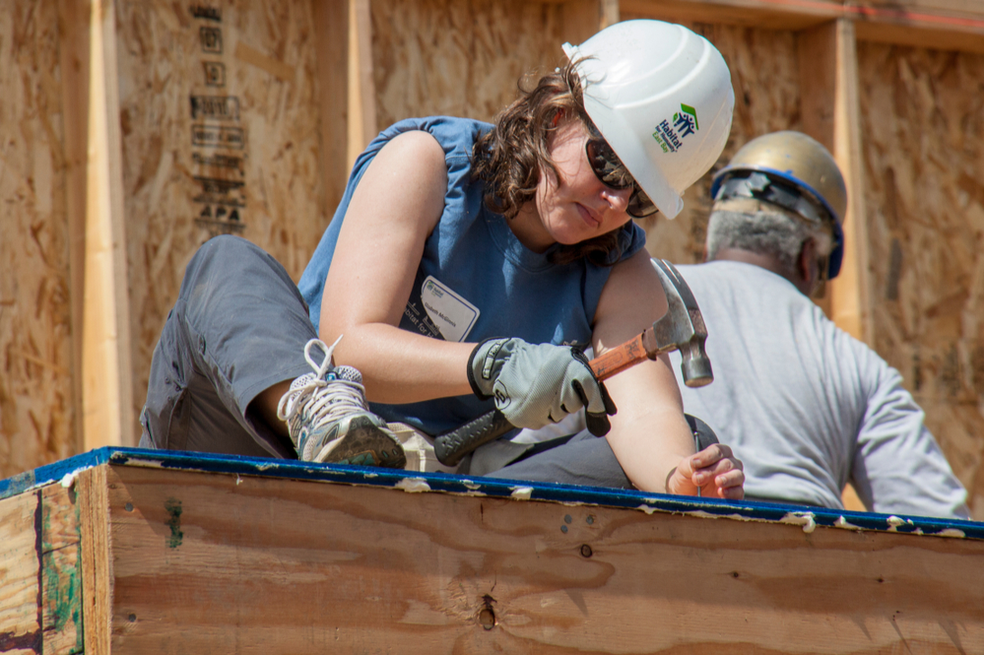A Foundation Goes All in to Support Rural Libraries
/LM Photos/shutterstock
Based in Austin, Texas, the Tocker Foundation describes itself as dedicated to the support of rural libraries of Texas serving populations of 12,000 or fewer. The foundation was established by the late Phillip and Olive Tocker of Waco. Phillip was an attorney by trade, and later went into the outdoor advertising business. He became president of the Outdoor Advertising Association of America and worked with Ted Turner’s father for a time.
“He wanted to give back to the rural Texas community where he made his money,” explained current Tocker Foundation Executive Director Darryl Tocker. The foundation did not immediately focus on libraries, however. Indeed, like other philanthropic stories, Tocker giving has evolved over time to meet the needs of the community.
An Evolving Mission
Founded in 1964, the foundation initially focused on helping underprivileged students, mainly kids of color, get into college. The Tockers were firm believers of education. Through the years, the foundation started looking at a more directed purpose. Darryl tells me the family has long believed in free access to information, and found that money given to libraries—which he calls the most “democratic institution”—directly impacted the community.
When the Tockers passed in the early 1990s, they endowed the foundation with their estate. And for some 25 years now, the foundation has made supporting rural libraries in Texas its core mission. In a recent fiscal year, the foundation held about $33.4 million in assets and gave away around $1.85 million. “We have not abandoned this niche. This is an area where we can provide a lot of difference,” Darryl tells me.
We’re written before that library giving hasn’t been the sexiest funding space. On the one hand, it’s tough to write about the history of philanthropy without highlighting industrialist Andrew Carnegie, who funded thousands of libraries around the country. Today, there are some 9,057 public libraries in the U.S. In recent years, we’ve tracked gifts including a $25 million donation by hedge fund couple Jim and Marilyn Simons to the New York Public Library, and James Merryl Tisch’s $20 million for library education programs at NYPL. On the other hand, while we regularly see eight-figure gifts to institutions such as hospitals, universities and cultural organizations, libraries rarely attract this same level of support.
One recent survey found that the percentage of people visiting libraries has fallen in recent years, so perhaps this is part of the reason that libraries haven’t received more funding. This isn’t what Darryl Tocker sees on the ground in his communities, though. He calls library usage as strong as ever. “We see no real decline in any of our libraries. People are requesting more and more services through the libraries,” he tells me.
Karin Gerstenhaber, the Tocker Foundation’s associate director, speaks to the particular importance of libraries in these rural Texas communities. “The city or county is doing very little in order to sustain the important services offered at the library, and that’s where our grants come in to help them sustain and keep growing and adding services,” she explains.
Tocker makes library grants toward general library improvements, digitization, automation and professional development. The foundation partners with University of North Texas, digitizing newspapers prior to 1965 to provide a window into Texas history. “It’s a fabulous resource we can use in education to show how, say, World War II affected our community directly. We really think this is powerful,” Darryl says.
He also talks about work they’ve supported around rethinking the entire footprint of a library, including issues like shelving, in order to open up the library and make it a more bright and inviting space. And these days, many patrons bring their own devices to libraries to access enhanced broadband, so fashioning spaces to accommodate this matters, too.
Tocker partners with Texas Association of Minority Engineers (TAME) to bring a trailer full of STEM projects out into rural libraries, encouraging youth to apply to college and make a difference in their communities. The foundation works with the Writers’ League of Texas, bringing published authors into libraries to conduct seminars on writing, editing, and even publishing.
Leveling the Playing Field
Regarding all this work, Darryl tells me that his uncle Phillip strongly believed that every citizen should have the resources of anyone in the larger community. This becomes particularly important in these rural towns across the vast state of Texas. “You can’t just go to the next town over, because that could be hours away. It’s important to have these resources within easy access at community and branch libraries,” Darryl explains.
Darryl and Karin emphasize that libraries aren’t just warehouses of material, but important centers of community that can provide wraparound services. Karin mentions, for instance, that some of their libraries work with Meals on Wheels or a local food bank. And other libraries engage in after-school study programs, workshops, and plenty more.
While the foundation sets its sights on Texas, it also launched the Don Tocker Library in Israel, named after Phillip and Olive’s late son, who was active in the Kibbutz movement and served in the Israeli army. The Tocker Foundation has thought about expanding its geographic focus, reaching out to New Mexico and even Mexico. But time and again, Darryl says its current model has proven the most effective. “We are working hard to support programs that are available through the Texas State Library. We want create a platform through the state that would be available at any public library outlet,” he says.
Karin also mentions a new collaborative of Texas-based foundations working in rural areas on the issue of broadband and connectivity. Tocker partners with Connected Nation to bring hotspot devices to the libraries in a few dozen communities. Much like lending out a book, libraries will lend out these hotspots devices so patrons can bring the internet home with them.
Ultimately, Tocker’s work focuses on helping libraries address 21st-century needs. To be sure, some of these issues, like broadband, are on the tech end. But the library can address other needs, such as job readiness and education, as well. This is where philanthropy can be a vital ally, especially in the far reaches of the Lone Star state.



















